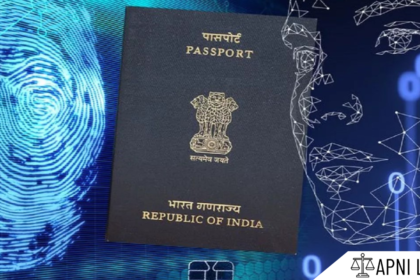Code:
(1) If, in the opinion of a Magistrate taking cognizance of a petty offence, the case may be summarily disposed of under section 283 or section 284, the Magistrate shall, except where he is, for reasons to be recorded in writing of a contrary opinion, issue summons to the accused requiring him either to appear in person or by an advocate before the Magistrate on a specified date, or if he desires to plead guilty to the charge without appearing before the Magistrate, to transmit before the specified date, by post or by messenger to the Magistrate, the said plea in writing and the amount of fine specified in the summons or if he desires to appear by an advocate and to plead guilty to the charge through such advocate, to authorise, in writing, the advocate to plead guilty to the charge on his behalf and to pay the fine through such advocate:
Provided that the amount of the fine specified in such summons shall not exceed five thousand rupees.
(2) For the purposes of this section, “petty offence” means any offence punishable only with fine not exceeding five thousand rupees, but does not include any offence so punishable under the Motor Vehicles Act, 1988 (59 of 1988), or under any other law which provides for convicting the accused person in his absence on a plea of guilty.
(3) The State Government may, by notification, specially empower any Magistrate to exercise the powers conferred by sub-section (1) in relation to any offence which is compoundable under section 359 or any offence punishable with imprisonment for a term not exceeding three months, or with fine, or with both where the Magistrate is of opinion that, having regard to the facts and circumstances of the case, the imposition of fine only would meet the ends of justice.
Explanation:
This section deals with the summary disposal of petty offences by a Magistrate. It outlines a procedure for the Magistrate to issue summons to the accused for a petty offence, allowing the accused to choose between appearing in person, appearing through a pleader, pleading guilty without appearing, or pleading guilty through a pleader.
- Magistrate’s Discretion: The Magistrate has the discretion to choose whether a case is suitable for summary disposal. If they decide against summary disposal, they must record their reasons in writing.
- Options for the Accused: The accused has several options for responding to the summons:
- Appear in person before the Magistrate.
- Appear through a pleader.
- Plead guilty without appearing before the Magistrate.
- Plead guilty through a pleader without appearing.
- Maximum Fine: The maximum fine that can be imposed in summary disposal under this section is Rs. 5000.
- Applicability: This section applies to ‘petty offenses’ which are punishable only with a fine not exceeding Rs. 5000. However, it excludes offenses punishable under the Motor Vehicles Act, 1988, or any other law that allows conviction in the accused’s absence on a plea of guilty.
- State Government’s Powers: The State Government can authorize Magistrates to summarily dispose of offenses that are compoundable under Section 359 or punishable with imprisonment for up to three months, or with fine, or both, if they believe that imposing only a fine would be just.
Illustration:
Imagine a person is caught driving without a valid driving license. This offense is punishable with a fine under the Motor Vehicles Act, 1988. If the fine for the offense is less than Rs. 5000, a Magistrate can apply the provisions of Section 229. They would issue a summons to the accused, outlining the options for appearing in court or pleading guilty remotely.
Common Questions & Answers:
- Q: What is a ‘petty offense’ under this section?A: Any offense punishable only with a fine not exceeding Rs. 5000, excluding offenses under the Motor Vehicles Act, 1988, or any other law that allows conviction in the accused’s absence on a plea of guilty.
- Q: What are the advantages of summary disposal under this section?A: It provides a quicker and simpler process for resolving petty offenses, saving time and resources for both the accused and the court.
- Q: Can the accused challenge the Magistrate’s decision to proceed with summary disposal?A: Yes, the accused can challenge the Magistrate’s decision if they believe that the case is not suitable for summary disposal.











